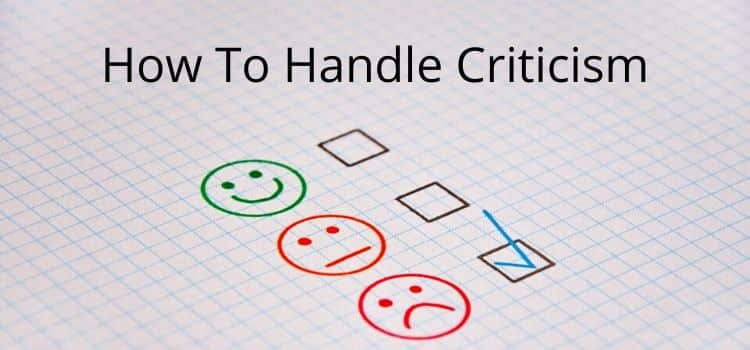
It might sound technical for new authors, but the basics of SEO (search engine optimization) is relatively easy to understand. Let’s look at how you can use it to help attract more book buyers.
Search engines are like huge digital libraries. They categorize and index web pages on the Internet and then suggest the most relevant pages to answer people’s search queries.
When you write articles or posts on your author blog or website, all you need to do is apply a set of simple SEO practices to help people discover them.
You write, and a lot of your writing will be published online. By optimizing your writing for SEO, you help tell search engines where readers can find your articles, and hopefully, discover your books.
How SEO works
Let’s say you write a new article about how to open a coconut.
Search engines, including Google, will crawl your site and hopefully index your article.
Then, when someone searches for an answer to “How do I open a coconut?”, Google will suggest the best pages on the subject, and perhaps, it will include the page or post on your site.

But if there are already one thousand pages that can answer the question, will your page be indexed at number one or one thousand for the search query?
Learning how to include some SEO basics can make a big difference in how high or low your page appears in search engines.
Ideally, you would like your new blog post or piece of content to appear on the first page.
However, that is unlikely to happen unless you understand the basics of how to write and optimize your website or blog, and every new page you add.
Your SEO efforts can help you achieve a high position or ranking on Google or Bing search engine results pages (SERPS).
Search engines use many ranking factors to differentiate between high-quality, relevant content and poor content. SEO has three major parts: reputation, On-page, and Off-page.
1. Your ranking and reputation
Google has an acronym for its assessment of content. E.E.A.T. It stands for Experience, Expertise, Authoritativeness, and Trustworthiness.
Over time, Google ranks your site on these four factors. It is why new websites perform poorly at first and why more established sites rank much higher.
The amount of search traffic you get to your site and individual pages on your website depends heavily on how you rank for these factors.
Experience and expertise are relatively easy. Be an expert in your field, and stay on topic in all of your articles and posts.
If your blog is about writing, create content that keeps to subjects directly related to the process of writing.
For example, you could use point of view, first-person writing, line editing, literary devices, or how to become a content writer.
Authority is not as easy.
You gain it by the number of other websites that link to your site. These are called backlinks. The more authority these sites have, the more your site’s authority improves.
Many people try to use link-building schemes to help this factor. However, most of these practices are frowned upon and don’t work.
These schemes and tricks are called black hat, which is a bit like saying it’s cheating.
Lastly, trustworthiness is a measure of the accuracy, accessibility, and validity of information on your site.
Key factors include having a contact form, clear legal pages, and ensuring your site is secure.
It also includes clear disclosures if you are promoting products or services.
In other words, search engines can confirm that your site is open and honest and that you have the authority to write on specific topics.
Use white hat practices
The opposite of black hat techniques is white hat, which uses best practices for search engine indexing.
The best way to build your authority is to be patient and wait for it to happen.
Sites link to high-quality content to add expertise or support to their articles. If you write well, this will happen over time. Quality links will attract more traffic to your website.
One way you can nudge it along is to have a clear reuse policy on your site. It can help remind people to link to your articles.
The last factor, trust, is totally under your control.
If your site is spammy or has links on the homepage to poor-quality sites or any other unsavory subject, it will lose trust.
You can also lose trust by writing clickbait post titles that have little or no relevance to your content.
Another way to lose trust is when you do not label paid content or advertising on your site.
As your reputation becomes more evident and more established for search engines, you will see a steady improvement in your organic traffic.
Summary:
1. Become an expert and make sure your articles are always on topic.
2. Be patient and wait for backlinks. They will come in time.
3. Keep your site honest and respect your visitors.
2. On-Page optimization
On-page or technical SEO works by including specific data to improve your search engine rank.
When you write a new article, you need to some SEO basics to give clear signals because search engines want to know where to file it. In other words, you need to write in a language that search engines understand.
You can do this with keywords. Keyword research has become almost a science for large companies and corporations, but you do not need to go that far.
All you need to do is use a short phrase that accurately describes your new article.
A keyword phrase is called a long-tail keyword, and it should ideally contain only nouns, verbs, or adjectives. Avoid prepositions, auxiliaries, and linking words, as these are not highly relevant to search engines.
If your article is about how to write from a third-person perspective in fiction, your keywords could be third-person writing, third-person omniscient, or third-person point of view.
Once you decide on your keyword phrase, you need to add it, or a form of it, in the following places in your article. These are often referred to as title tags and meta descriptions.
Keyword locations:
a. In your title.
b. In the first paragraph of your text.
c. In your title tag
d. In your meta description
You should only use it once in each place. However, you can use it more than once in your body text, but don’t use it too often.
Search engines look in these locations when they crawl your pages.
By finding a similar short phrase in each place, they recognize that it is your keyword and that it describes the principal topic of your article.
Avoid keyword stuffing
If you add your keyword phrase too often in your text, it is called keyword stuffing.
Keyword stuffing is black hat, and even if it occurs by accident or inattention, it will result in your page being ranked very low or even ignored by search engines.
Sometimes it is difficult to avoid repeating the keywords in your text, particularly if it is very long. But try to avoid using it more than three or four times.
Another element is internal linking. This is when you use anchor text to create internal links to other pages on your site. Here is an example.
Because I am writing about SEO basics, I can tell you that I wrote a great article about keyword tools.
If you click the preceding link, it takes you to another article on this site.
Internal linking relates one article to another. It helps search engines understand your site, and it also helps create a better user experience.
The best approach is to place internal links to your new articles from high-quality, higher-ranking pages that have already been indexed.
This will help your new article’s ranking a little.
Summary
1. Carefully select your long-tail keyword phrase
2. Use your keyword in the four designated positions
3. Use internal linking to all new articles.
3. Off-page optimization
In essence, anything you do to promote your site is off-page.
On your social media profiles, you can add a link to your site. You can also create a link to your website by commenting on other blogs or newspapers.
Some new sites use paid search, such as Google Ads, to boost site rankings and attract more visitors, which can help kickstart a new website or blog.
You can also use content marketing.
By writing content that you publish on other sites, even for products and services that are not directly related to your blog’s topic, you will get a chance to add a useful backlink to your site.
Also, telling people you know or are in contact with in your daily life can help. An article about you in your regional paper can help attract new visitors to your site.
4. Amazon SEO
It is not just for web pages and blog posts that you need to know how to use SEO optimization.
For your books published on Amazon, SEO techniques can help you attract more readers.
You might not realize it, but when you published your book, you had to add seven keywords.
These work exactly the same as SEO keywords in a blog post.
The only difference is that they help people find your book on Amazon rather than on search engines.
You should do your research on these keywords and make sure that they are helping you find readers.
There are many ways you can research Amazon keywords for free.
Conclusion
You don’t need to be an expert to improve your chances of attracting more visitors to your site and articles.
It’s quite easy to apply some SEO basics to optimize your website or blog by taking simple steps and measures, and developing new writing habits. Then you can check your progress with any one of many free SEO tools.
If you use the basics that I have outlined, your site and search ranking will improve over time.
But remember that a three-year-old site will perform better than a three-month-old site. So be patient.
Always keep your site’s reputation top of mind. Add your keyword in four places in every article you write, add internal links, and promote your site at every opportunity.
Then you will have mastered enough to learn how to use SEO to help your site improve considerably.
Related Reading: Check Your Writing Before You Publish Anything Online



